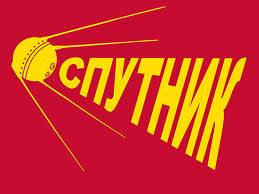
Co-operate and collaborate creatively: eXact learning solutions’ message to the West’s corporate learning industry
The western learning and publishing industries are being urged to experience their own ‘Sputnik effect’ – 50 years after President Kennedy committed the US to win the Space Race after being surprised by the initial success of the USSR’s ‘Sputniks’.
This call comes in a whitepaper published by eXact learning solutions, a leading online and mobile learning solutions provider. The whitepaper expresses the views of Fabrizio Cardinali, CEO of eXact Learning Solutions’ North America and Australia operations and Senior Vice President of the company’s Global Business Development.
The whitepaper – available from http://gnstx.gr/fDI – argues that western corporate learning industry leaders need similar vision and commitment if they are to help their organisations continue to compete and survive global competition effectively from the emerging world’s labour and educational markets. Cardinali draws parallels between the world’s historic industry challenges - such as the one faced by the US aerospace industry during the Cold War - and the peculiar challenges and opportunities currently facing the West’s publishers and learning technologies developers as they try to help the West survive increasing competition, both for appropriately skilled workers and for business in global markets.
“To be successful , we need to combine creativity and innovation,” Cardinali said. “Interestingly, such a combination occurred in Europe during the Renaissance – so we should strive to create the circumstances that will bring about a ‘renaissance 2.0’ perfect knowledge storm. “
For Cardinali, a ‘Sputnik effect’ is needed to restore similar habits among western entrepreneurs and thought leaders - to help western economies survive global challenges.
The USSR launching the Sputnik in 1957 - and thus becoming the first nation into space - gave the American aerospace industry a wake-up call. Cardinali believes that the West’s corporate learning and publishing industries today face a similar challenge since countries with emerging economies – including India and China – are doing ‘learning-related things’ faster than they are.
“Today, the West needs to reduce its corporate learning ‘missile gap’,” said Cardinali. “To do this, we need to understand the nature of creativity and genius – and use this knowledge to detect and encourage excellence in performance.
“Moreover, innovative technology should be generated by multi-disciplinary teams, working together to create innovative learning experiences and solutions for our workforces. We desperately need an increase in the depth of creativity in today’s learning technologies.
“As an industry, we need to re-engage in lateral thinking - still competing but taking risks together,” he said. “At the least, we need to do what China is doing in terms of investment in skills development and new learning technologies - and we need to do it as fast as they’re doing it - but we need to find our own creative and innovative strategies and solutions to the issue of performance support and talent development.”
When it comes to being successful at surviving the increasingly challenging issues surrounding global competition, Cardinali turns to Charles Darwin for inspiration. Cardinali said: “Darwin’s precepts teach us that it’s not the smartest, the ‘best’ or the wisest who’ll survive the current economic challenges.
“Nor will it be the best trained trainee and the best taught student. Rather, those who survive will be those who’re the most adaptive.
“Similarly, it’s not the most expensive or even the best educational design content that will succeed and stand the test of time. Those who’ll be the most successful in the marketplace are those who can adapt most quickly to new jobs and profiles.
“The best digital content that will survive will be the content that’s designed to better adapt to new learning delivery technologies and devices.”
Cardinali has also outlined these views in a presentation at the Corporate Plenary at Online Educa in Berlin, the world’s largest educational technologies event. To see this presentation, visit http://www.online-educa.com/audio-video-1019
For further discussions on this topic, please visit eXact learning's blog: http://gnstx.gr/fyv
End


